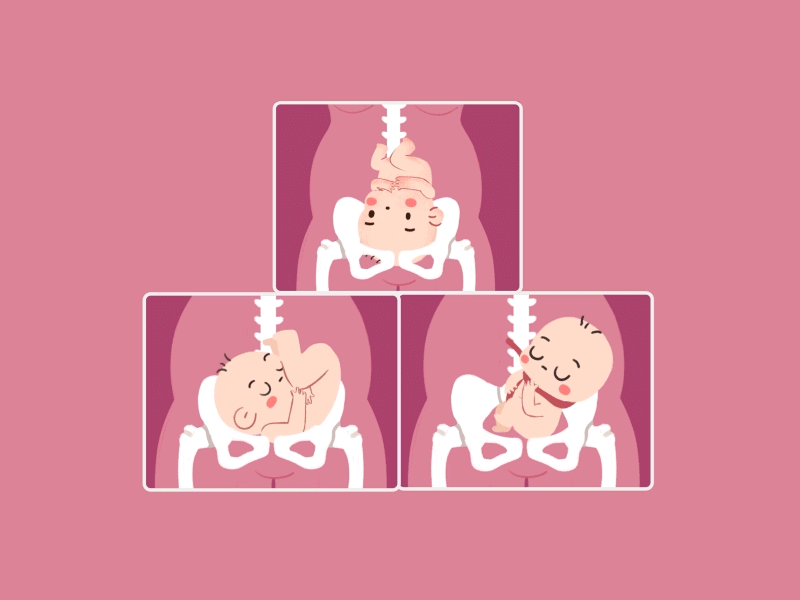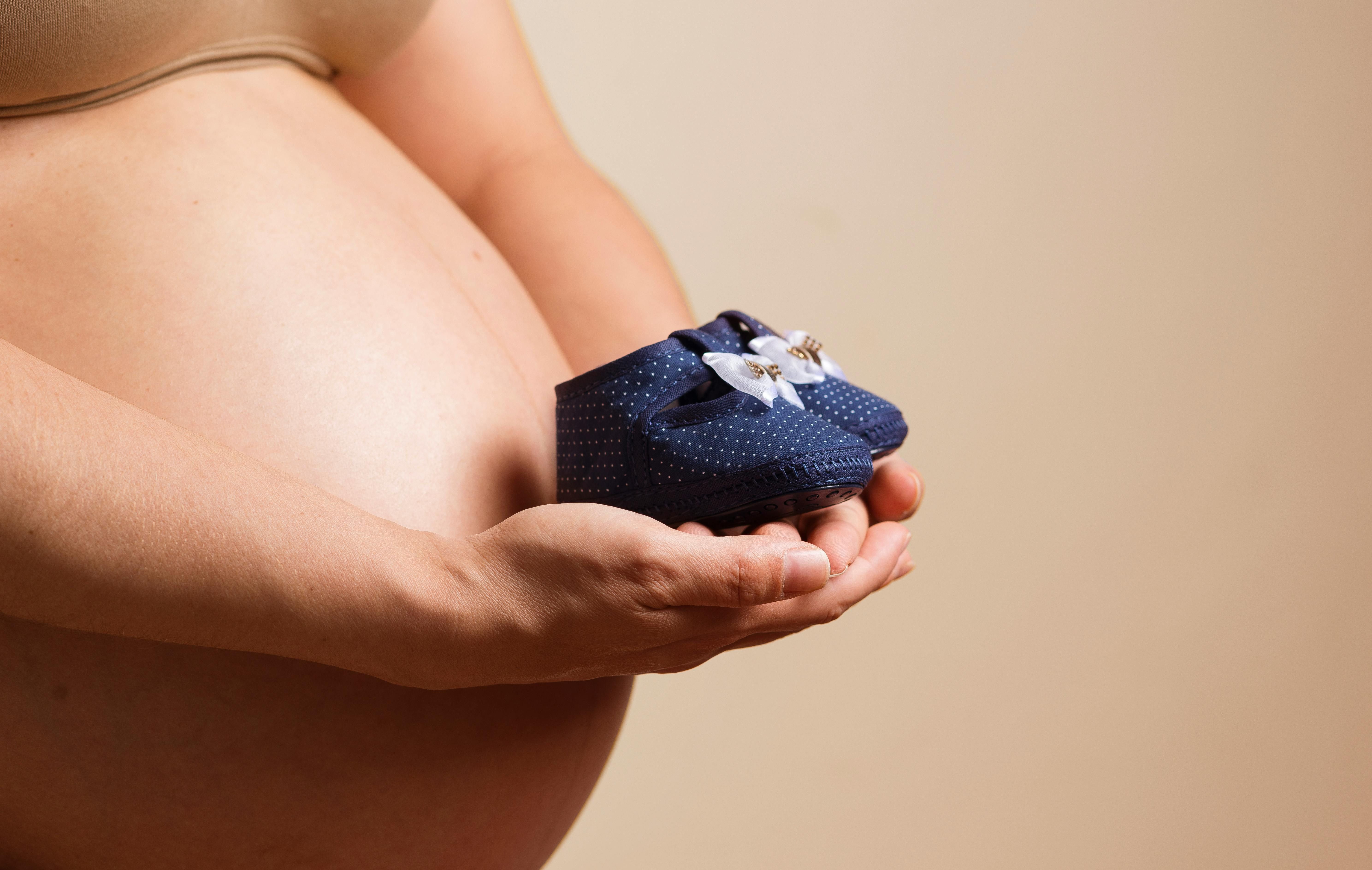
Separating Fact from Fiction: Do Detox Drinks Really Work?
Detox beverages have gained massive popularity in recent years, with promises of everything from quick weight loss to complete bodily "cleansing." Fro...

Losing weight after a C-section can be more challenging than after a vaginal birth, but with the right approach, it’s entirely possible. It’s important to focus on gentle recovery, maintaining a balanced diet, and setting realistic goals as your body heals from both the surgery and childbirth. Here’s what you need to know about losing weight safely and effectively after a C-section.

After a C-section, your hormones shift dramatically. Estrogen and progesterone levels drop, which can cause your body to hold on to fat, especially around the abdomen. If you’re breastfeeding, prolactin is elevated, which helps your body burn extra calories—about 500 more per day. However, even with breastfeeding, the weight may not come off immediately, as your body may retain fat to ensure you have enough energy for milk production.
Fact to know: Experts suggest aiming for gradual weight loss of about 1-1.5 pounds per week. This slow pace allows for steady progress without affecting milk supply or your recovery.
Tip: Focus on eating nutrient-rich foods like lean proteins, whole grains, and vegetables. Stay hydrated and eat frequently to maintain your energy levels, especially during breastfeeding.
Since a C-section is a major surgery, it’s important to give yourself enough time to heal before jumping back into exercise. Most doctors recommend waiting 6-8 weeks after surgery before starting any intense physical activity. However, you can start with gentle movements like walking as soon as you feel ready.
Did you know? Diastasis recti, or the separation of abdominal muscles, is common after a C-section, so it’s important to avoid exercises that put too much strain on your core until your muscles heal.
Pro Tip: Start with walking, light stretching, and postpartum yoga. Once cleared by your doctor, you can gradually incorporate strength training and core exercises to rebuild muscle and tone your body.

Weight loss after a C-section is typically slower due to the need for extra healing time and reduced physical activity in the early postpartum weeks. On average, women lose about 10-15 pounds immediately after childbirth, mostly from the baby, placenta, and fluids, but the remaining weight may take 6-12 months to come off, depending on factors like diet, exercise, and individual metabolism.
Fact: It can take a full year to recover from a C-section and return to your pre-pregnancy weight. Rushing the process can increase the risk of complications or weight regain later on.
Tip: Aim for slow and steady progress, and don’t compare yourself to others. Every woman’s body is different, and your journey to weight loss is unique to you.
Your body needs extra nutrition to heal after a C-section, especially if you’re breastfeeding. A balanced diet with lean proteins, healthy fats, whole grains, and plenty of fruits and vegetables will give you the energy you need and support weight loss.
Interesting Stat: Aim for 75-100 grams of protein per day to support muscle repair and tissue recovery. Staying hydrated is also crucial, as it helps with digestion and milk production.
Pro Tip: Avoid crash diets or drastic calorie cutting, especially while breastfeeding. Focus on eating enough to keep up your energy, but make smart choices with nutrient-dense foods that help fuel your recovery and weight loss.

The postpartum period can be overwhelming, and it’s easy to feel frustrated about your body’s changes. Postpartum depression affects up to 20% of new mothers, so it’s essential to seek emotional support if you’re feeling down or struggling with self-image.
Pro Tip: Focus on the positives. Celebrate the non-scale victories like better sleep, increased energy, or improved mood. Surround yourself with supportive people, and remember that every small step forward counts toward your overall health and well-being.
A: Most doctors recommend waiting at least 6-8 weeks before starting any strenuous exercise, such as running or weightlifting. However, gentle activities like walking or postpartum yoga can be started earlier, as soon as you feel ready and have been cleared by your doctor.
A: It typically takes 6-12 months for most women to lose the weight gained during pregnancy. However, the timeline can vary depending on factors such as diet, exercise, breastfeeding, and individual metabolism. It’s important to focus on gradual weight loss for both recovery and long-term success.
A: Yes, breastfeeding can help burn extra calories—about 500 calories per day—which may contribute to weight loss. However, results vary, and some women may experience a plateau in weight loss due to their bodies holding onto fat stores for milk production.
A: Start with low-impact exercises like walking, pelvic tilts, and gentle yoga. Once your core has strengthened and you’ve been cleared by your doctor, you can gradually introduce more intense workouts like strength training and cardio.
A: Focus on a balanced diet rich in lean proteins, whole grains, and vegetables to fuel your recovery. Avoid extreme dieting, stay hydrated, and start with light physical activities to gradually regain strength.
The information provided in this article is for educational purposes only and should not be taken as medical advice. Always consult with a healthcare professional before beginning any new diet or exercise program, especially after a surgical procedure like a C-section. Every individual’s recovery and weight loss journey is unique, and personalized advice from a healthcare provider is crucial to ensure safe and healthy results.
Weight loss after a C-section is a journey that takes time, patience, and a focus on healing. By approaching it gradually with gentle exercise, a balanced diet, and emotional self-care, you can lose the baby weight in a healthy and sustainable way. Be kind to yourself—your body has been through a lot, and your recovery is just as important as reaching your weight loss goals.

Detox beverages have gained massive popularity in recent years, with promises of everything from quick weight loss to complete bodily "cleansing." Fro...

Staying hydrated is essential for your overall health, but plain water can get a little boring. The good news is that infused water—packed with fruits...

In recent years, the rise of non-alcoholic spirits has taken the social scene by storm, offering women (and everyone!) the opportunity to enjoy a craf...

Socializing with cocktails can be fun, but many traditional drinks are loaded with sugar and artificial ingredients that may leave you feeling less th...

The Female Athlete Triad is a serious medical condition that affects physically active women and girls, especially those involved in competitive sport...